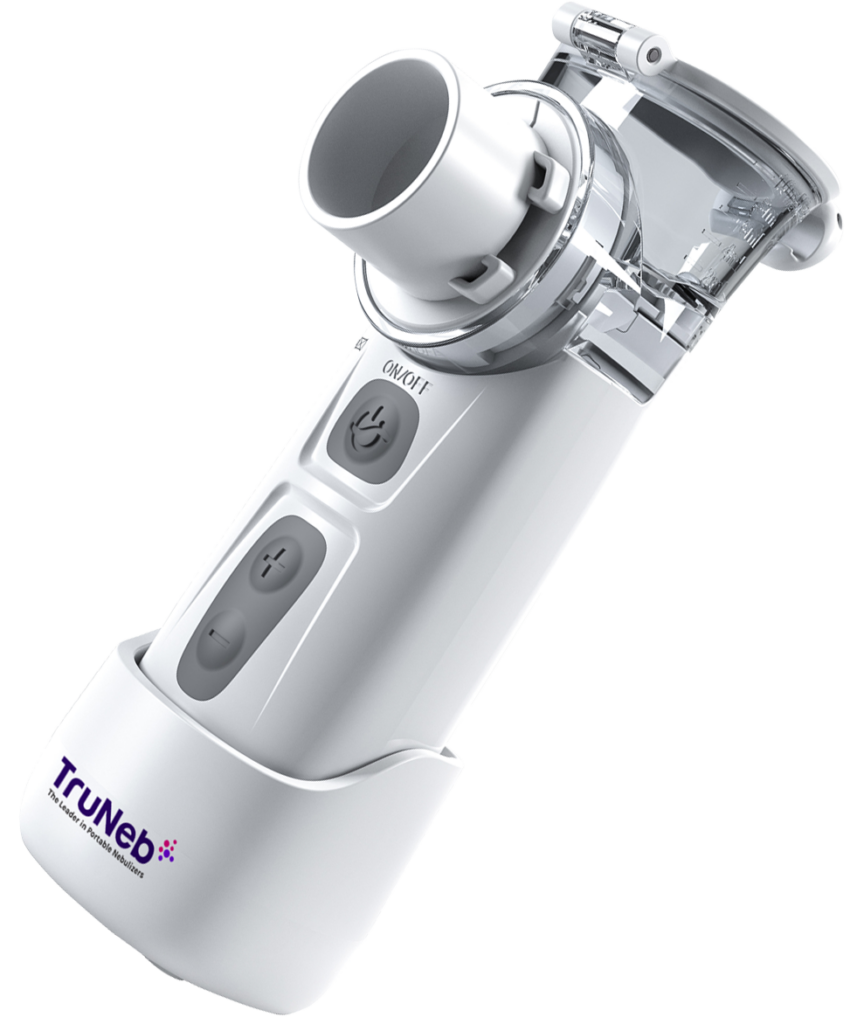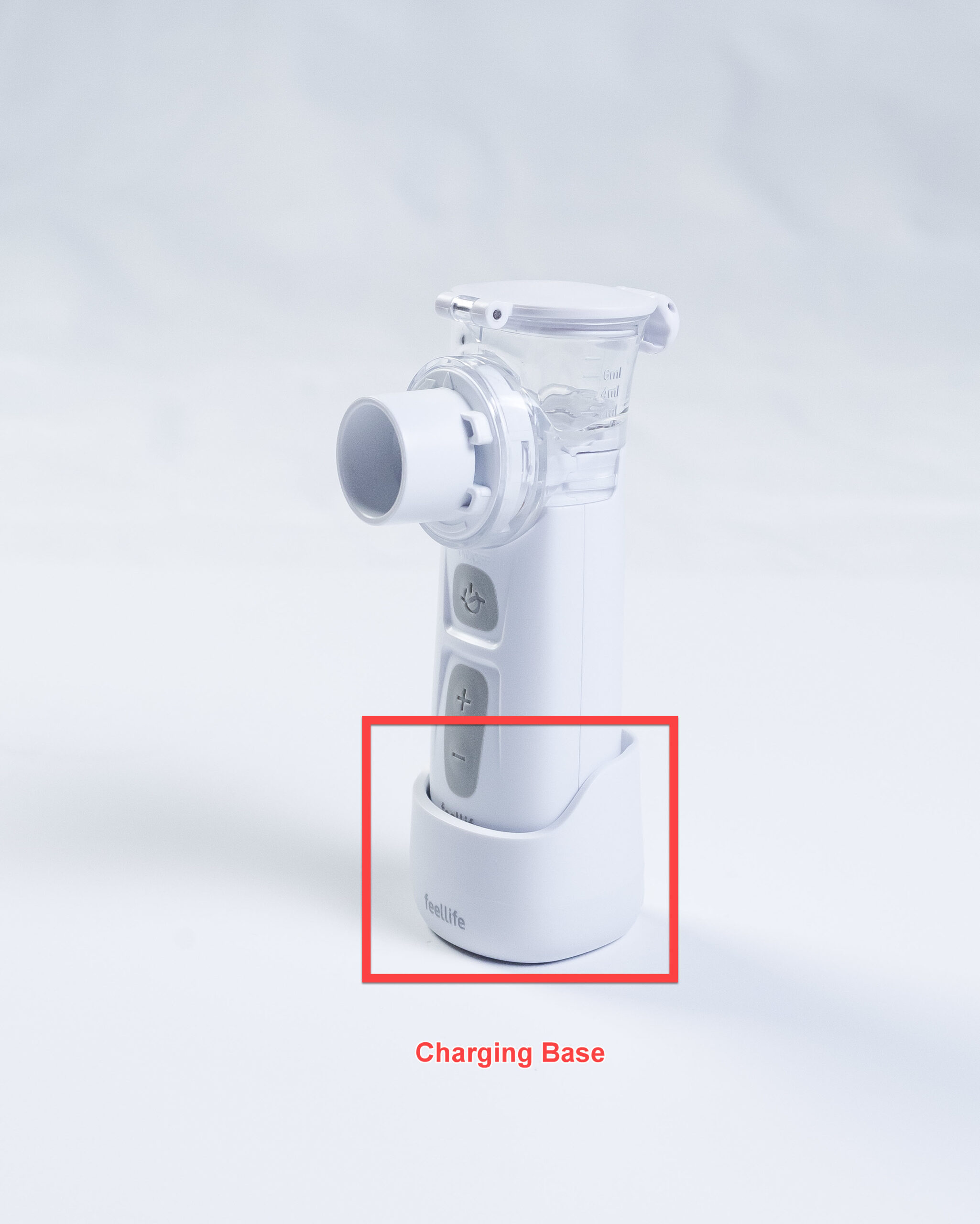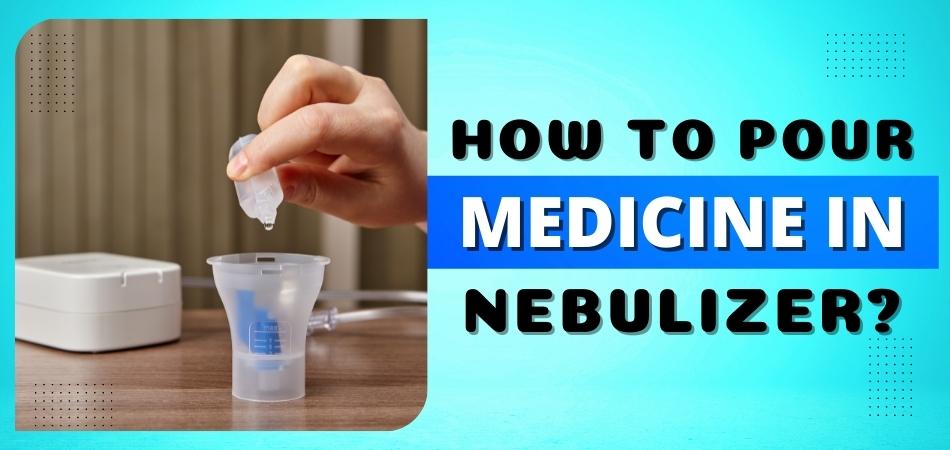When it comes to treating respiratory ailments, many people turn to nebulizers. These devices convert liquid medication into a fine mist that can be inhaled directly into the lungs. Saline is often used in nebulizers as a way to thin out mucus and make breathing easier.
But is it safe to use saline in nebulizers? The short answer is yes, saline is generally safe for most people when used as directed. Saline solutions are typically made with sterile water and salt.
They’re non-irritating and usually don’t cause any side effects. However, there’s always a small risk of infection when using any type of medical device. If you have any concerns about using saline in your nebulizer, talk to your doctor or pharmacist.
What is Saline in Nebulizer?
Saline in a nebulizer is a saltwater solution that helps thin and loosens mucus in the lungs so it can be coughed out. The typical concentration of saline solution for nebulization is 0.9%. This means that 9 grams of salt are dissolved in 1 liter (1000 mL) of distilled water.
Some research suggests that using a 3% saline solution may be more effective than the 0.9% solution at breaking up mucus. If you’d like to try a 3% saline solution, talk to your doctor first. Saline comes in either pre-mixed containers or as a dry powder that you mix with water yourself.
A single dose of saline usually requires between 2 and 5 mL of solution. Your doctor or prescribing nurse will let you know how much saline to use for each treatment. Some people add other medications, such as albuterol, to their saline solution.
This is known as hypertonic saline. Albuterol is a bronchodilator that opens up the airways, making it easier to breathe. Adding it to saline may make the solution more effective at breaking up mucus and making it easier to cough out.
However, hypertonic saline isn’t suitable for everyone, so talk to your doctor before adding any medications to your nebulizer treatments. Nebulizing with plain saline is safe for most people, including children and pregnant women.
If you have congestive heart failure, kidney problems, or high blood pressure, talk to your doctor before using a nebulizer with a saline solution. These conditions can make it difficult for your body to eliminate excess fluid, so using a nebulizer may cause fluid retention and worsen your symptoms.
There’s also a small risk of developing an infection from using a nebulizer, so be sure to clean the machine regularly according to the manufacturer’s instructions.
How to Use Saline in a Nebulizer?
A nebulizer is a device that helps turn liquid medication into a fine mist, making it easier to breathe. Some nebulizers use liquid saline to help deliver the medication to your lungs.
Saline is a sterile, saltwater solution that acts as a lubricant and moistens the air you breathe in. It also helps to break up any mucus in your airway. If you have a nebulizer, it’s important to know how to use it properly. Here are instructions for using saline in a nebulizer:
- Fill the medication cup with saline solution. Make sure not to overfill it, as this can damage the nebulizer.
- Attach the cup to the nebulizer base.
- Place the mouthpiece between your teeth and close your lips around it.
- Turn on the machine and take slow, deep breaths until all of the medication has been used up.
- Rinse your mouth after use and dispose of the cups and tubing according to your model’s instructions.
By following these simple steps, you can ensure that you’re using your nebulizer correctly and getting the most out of your saline treatments.
Is It Safe to Use Saline in Nebulizer?
When it comes to nebulizer treatments, many people wonder if it is safe to use saline. The answer is yes, it is safe to use saline in a nebulizer. In fact, saline is often the best option for people who are looking for a natural way to treat their respiratory conditions.

Here’s why:
Saline is a natural substance that can help to thin mucus and make it easier to breathe. Additionally, saline solutions are isotonic, which means that they will not irritate the lungs or airways like some other options (such as tap water) can. Finally, saline solutions are inexpensive and easily accessible – you can find them at most pharmacies or even make your own at home.
If you are interested in trying a saline solution for your nebulizer treatment, be sure to speak with your doctor first to ensure that it is the right option for you.
Saline Nebulizer Side Effects
A nebulizer is a device that helps deliver asthma medication to your lungs in the form of a mist. The treatments usually last between five and 15 minutes. They’re often used to relieve acute asthma symptoms or manage chronic asthma.
Nebulizers are generally safe, but there are some potential side effects, such as: Dry mouth: You may experience a dry mouth after using a nebulizer. This is because the medication can cause your saliva to become thicker and drier.
To help relieve this, drink plenty of fluids before and after using your nebulizer. Throat irritation: Inhaling medicine through a nebulizer can sometimes cause throat irritation. If this happens, try gargling with warm salt water or sucking on hard candy to help relieve any discomfort.
- Dizziness: Some people may feel dizzy or lightheaded after using a nebulizer. If you experience these symptoms, sit down until they subside. It’s also important to avoid driving or operating heavy machinery until you know how the medication will affect you.
- Nausea: Nausea is another possible side effect of nebulized medications. If you start feeling nauseous during treatment, stop using the machine and call your doctor right away.
Can I Use Nasal Spray in Nebulizer?
If you have a nebulizer, you may be wondering if you can use the nasal spray in it. The answer is yes! You can use most types of nasal spray in a nebulizer.
This includes saline solution, which can help to rinse out your sinuses, and steroidal sprays, which can help to reduce inflammation. Many people find that using a nasal spray in their nebulizer helps them to breathe more easily and get relief from symptoms more quickly.
If you are unsure about whether or not your particular type of nasal spray is safe to use in a nebulizer, be sure to check with your doctor or pharmacist.
Normal Saline Nebulizer for Asthma
If you have asthma, you know that treatments and medications are vital to keeping your symptoms under control. One type of medication that can be used to treat asthma is a nebulizer. A nebulizer is a machine that turns liquid medication into a fine mist, which can be inhaled directly into the lungs.
One popular medication for nebulizers is a normal saline solution. Normal saline is simply salt water, and it can be used to help thin mucus and make it easier to cough up. This can help clear your airways and make it easier to breathe.
Inhaling normal saline through a nebulizer can also help reduce inflammation in the airways. This can lead to fewer asthma attacks and less severe symptoms overall. If you’re interested in trying normal saline as a treatment for your asthma, talk to your doctor about whether it’s right for you.
Saline Water for Nebulizer for Babies
If you have a baby with a respiratory condition, you may be wondering if saline water for a nebulizer is the best option. Saline water can help to thin mucus and make it easier for your baby to breathe. It is also sterile and free of any bacteria or other contaminants that could harm your baby.
There are a few things to keep in mind when using saline water for nebulizer treatments.
- First, be sure to use distilled or sterilized water. This will help to ensure that the solution is clean and free of any harmful bacteria.
- Second, only use sterile saline packets that are meant for nebulizers – do not try to make your own saline solution at home.
- Finally, follow all instructions from your doctor or respiratory therapist carefully. Overall, using saline water for nebulizer treatments is generally safe and effective for babies with respiratory conditions.
Be sure to use distilled or sterilized water and only use sterile packets meant for nebulizers. Following these guidelines will help ensure that your baby receives the best possible care.
Is Saline Nebulizer Good for Lungs?
Saline nebulizer therapy is a type of Respiratory Therapy that helps to clear the lungs by using a salt-water solution. The saline solution, which is typically sterile, loosens and breaks up mucus in the lungs so that it can be expelled through coughing.

This therapy also helps to moisturize the airways, which can provide relief for people who suffer from conditions such as bronchitis, COPD (Chronic Obstructive Pulmonary Disease), and cystic fibrosis.
There are many benefits of saline nebulizer therapy, but some of the most notable ones include:
- Reducing inflammation in the airways
- Clearing mucus from the lungs
- Moisturizing the airways
- Relieving symptoms of respiratory conditions such as bronchitis, COPD, and cystic fibrosis.
Saline nebulizer therapy is generally considered safe for most people.
However, there are a few potential side effects that you should be aware of before starting treatment. These side effects may include:
- Coughing up more mucus than usual
- Sore throat
- Wheezing
It’s important to talk to your doctor before starting saline nebulizer therapy if you have any concerns about possible side effects.
Will Saline in Nebulizer Help Cough?
If you’re suffering from a cough, you may be wondering if using a nebulizer with saline will help. The answer is maybe.
While there is some evidence that using a nebulizer can help to loosen mucus and make it easier to cough up, it’s not clear how effective it is for treating a cough specifically.
And while the saline solution may help to thin out mucus, it’s also possible that it could irritate your lungs and make your cough worse. So if you’re considering using a nebulizer with saline for your cough, be sure to talk to your doctor first to see if it’s right for you.
How Often Can You Use a Nebulizer With Saline?
A nebulizer with saline solution can be particularly effective in clearing out the airways and providing relief from congestion. The recommended frequency for using a nebulizer with saline solution will vary depending on the severity of the condition being treated.
For milder conditions, it may be sufficient to use the nebulizer once or twice a day. More severe conditions may require three or four treatments per day. It is important to follow the instructions of a healthcare professional when using a nebulizer, as improper use could cause further irritation or even lung damage.
When used as directed, however, a nebulizer with saline solution can be a safe and effective way to treat respiratory conditions.
Conclusion
If you have asthma, your doctor may have prescribed a nebulizer for you to use at home. A nebulizer is a small, electric machine that turns liquid medicine into a fine mist that you inhale through a mouthpiece or mask. Some nebulizers use saline solution, which is just salt water, as liquid medicine.
Why is TruNeb™ the Best Portable Nebulizer?
Our nebulizer is truly the best portable nebulizer on the market, for the simple reason that it gives you an accurate and quick dose of your medications each time you need them.
The TruNeb™ turns your liquid medication into a mist that you breathe in, helping the meds to reach your lungs quicker, and giving you immediate relief when you need it most.
Our portable mesh nebulizer machine works for both kids and adults, making it easy for anyone who needs nebulized therapy. Order your own nebulizer now!



